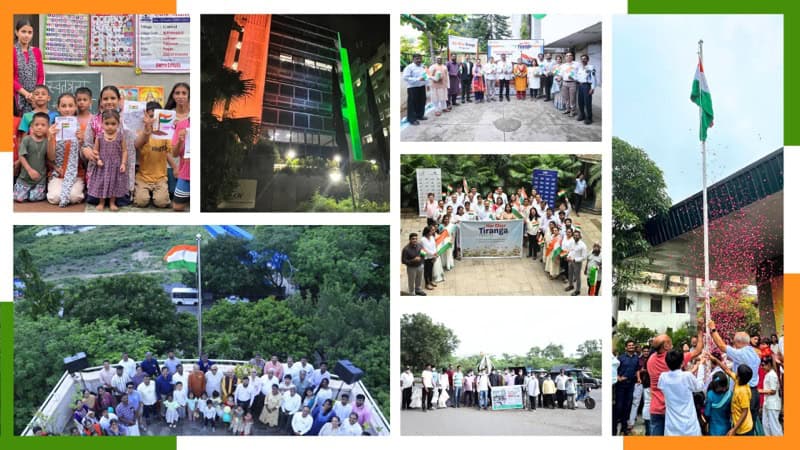The CII Centre of Excellence on Employment and Livelihood works to implement multi-stakeholder, impact-driven projects and facilitate key policy dialogues to break the systemic barriers that impede the exponential growth possible in this sector.
In India, the term microenterprise typically refers to very small enterprises that dot the economic and physical landscape of the country: street vendors, eateries, artisans, grocery shops, garages, service providers, small retailers, and manufacturers. The term conjures up the image of a business that’s often family run, has limited capital, and lacks the necessary resources and perhaps even the intent to scale up. The subtext of the narrative is that this type of business has tremendous hurdles and plateaus in growth beyond a certain point.
This narrative hides the bigger and more interesting picture about microentrepreneurs in the country. The Medium, Small, and Micro Enterprises (MSME) sector contributes about 30% to India’s GDP and around 50% to its total exports. Microenterprises make up 99% of this sector. Therefore, the microenterprises significantly contribute to the power of the MSME sector.
As per the Annual Report of the Ministry of Micro, Small, and Medium Enterprises (MSME), microenterprises employ about 107 million people. This accounts for almost 25% of India’s total workforce, making the sector one of the largest employment sources in the country.
Studies from the National Sample Survey Office (NSSO) indicate that 60–70% of workers in microenterprises come from economically marginalised backgrounds and turn to entrepreneurship as a means of earning a living to support their basic needs. Microenterprises also play a vital role in strengthening local economies. They provide goods and services tailored to community needs, foster local supply chains, and contribute to rural development. By supporting these businesses, India can ensure equitable economic growth that reaches all segments of society.
India’s complex growth challenges are now catalysing a welcome shift in the microenterprise narrative. These businesses are finally being recognised for their potential to accelerate economic development and promote social inclusion. In 2020, to provide targeted support to this sector, the government reclassified microenterprises as businesses with investment of up to INR 1 crore and turnover of not more than INR 5 crore. Indian industry is also turning to them for supply chain solutions and market expansion. There is agreement across the board that microenterprises can catalyse transformative changes in the country and accelerate the journey towards being a developed nation by 2047.
However, there is still some distance to cover before this sector can perform to its potential.
Many microentrepreneurs belong to the informal sector and lack a legal identity or a documented track record. This limits their access to formal credit, social security, and market opportunities. While Micro Finance Institutions (MFIs) and initiatives like the Pradhan Mantri Mudra Yojana (PMMY) have made strides in providing financial services to microentrepreneurs, there is much that Non-Banking Financial Institutions (NBFIs) can do in the space. NBFIs should look at introducing tailored products, use alternative methods such as analysing transactions with suppliers or customers of these entities for building the credit rating model, build digital platforms for easier access, simplify disbursement, and even be a channel for government loans. And, while increasing access to finance will definitely help the sector, it will be of little use if microenterprises are unable to absorb these resources and grow. Most microentrepreneurs lack the skills and business acumen to scale up. They need consistent capacity building to increase their operational efficiency and grow sustainably, especially with the focus on digitalisation and sustainability.
The Indian industry, with its reach and resources, is uniquely placed to catalyse transformative changes in the sector, and it must do so urgently. Today, a strong microenterprises sector is as much a business imperative as a social one. This segment can exponentially increase the global competitiveness of Indian businesses by addressing issues such as sustainable supply chains, innovations, new markets, and climate resilience.
The Confederation of Indian Industry (CII) has instituted the CII TVS Mobility Centre of Excellence on Employment and Livelihood (CII CEL) as a platform to transform India’s micro-entrepreneurial landscape and establish microenterprises as a transformative force for the country.
The Centre will act as the national platform for microenterprises that builds an ecosystem linking industry, NGOs, and support organisations to protect and strengthen the microenterprises in terms of skill upgrading, capacity building, advocacy, etc. This platform will create separate subgroups for each of these players—industry, NGOs, and support organisations—for building resource pools and making them interoperable, allowing for cross-collaboration and a deeper engagement with microenterprises. The Centre is working on mission mode to catalyse projects and policies that make a tangible impact on the ground.
In the long run, the Centre intends to catalyse a microentrepreneurial movement in the country and, in the process, herald inclusive growth. It is time for businesses, academia, and nonprofits to work with the government to create a strong entrepreneurial ecosystem in the country in the pursuit of being an inclusively developed country by 2047. An equitable India is a stronger India.

For over a decade, India@100 Foundation has been working extensively to mainstream and institutionalise volunteering in India. In September this year, it partnered with Young Indians (Yi) to conduct a beach clean-up at Carter Road, Bandra, Mumbai. This initiative was part of the Swachhata Hi Seva (SHS) campaign 2024.
Swachhata Hi Seva, an extension of the Swachh Bharat Mission, is organized by the Ministry of Housing and Urban Affairs (MoHUA) and the Department of Drinking Water and Sanitation, Ministry of Jal Shakti. This year the campaign emphasized the theme “Swabhav Swachhata, Sanskar Swachhata”, focusing on public participation and united action for cleanliness and sanitation.
In keeping with the spirit of the campaign, the beach clean-up activity led by India@100 Foundation and CII Western Region brought together various organizations like ConnectFor, Carter Cleanup, and Ek Saath Foundation. Over 200 volunteers participated in collecting waste from the beach and mangrove areas, ensuring proper segregation and recycling of the collected materials.
The initiative was part of a nationwide effort by CII members to support the SHS campaign through various activities, including cleanliness drives, shramdaan (voluntary labor), and engagement with local self-help groups and sanitation workers.

India@100 Foundation has been organising the National Volunteering Week (NVW) since January 2014. Every year, between January 18–24, corporates, nonprofits and individuals come together to volunteer for the larger good. Since NVW’s inception, over 20 million people have volunteered more than 2.5 million hours and contributed to the change they want to bring. This year choose to be a part of this growing tribe.





